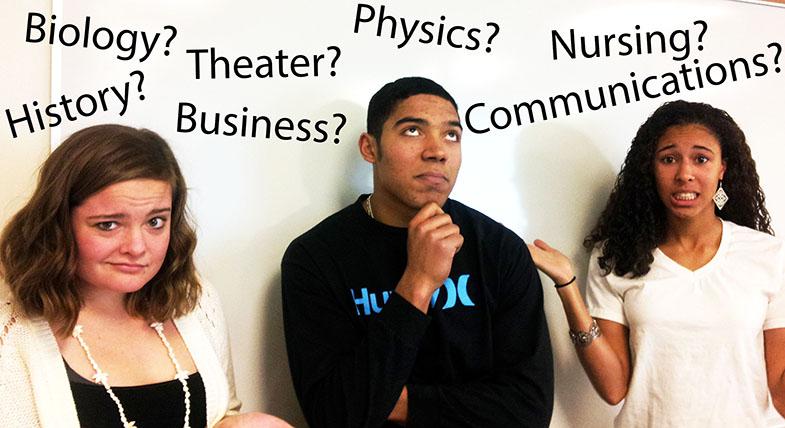How to Choose a College Major
Four tips to help high school seniors find the right major
With just one semester of high school left, many seniors have begun fighting off a barrage of questions about the future. “Where are you going to college?” “Why did you choose that school?” “What are you planning on majoring in?” It can feel more than a little overwhelming not knowing the answers to these questions just yet. But not to worry, these four steps provide helpful tips for high school seniors trying to make a very important decision: what to major in.
1: Go into college undecided
Students should give themselves time. It is rare to find an 18 year old who knows exactly what they want to do for the rest of their life, and that is perfectly okay. It is a good idea to go into college with an open mind, ready to try new things. Going into college already having a declared major limits the possibilities. Going in undeclared allows students to take a class they may have never taken with a declared major. They may find they hate it, but they may find they love it, opening the doors to all kinds of new options.
2: Try out new courses
This goes hand in hand with going into college undecided. Without a declared major, it is easy to take a diverse handful of classes. Freshman and sophomore years are the perfect time to try out new classes. If a student has no idea what they want to major in, it’s a good idea for them to take classes in as many different fields of study as possible. Trying out a little bit of everything is a great way for students to find classes they love, classes they like, and classes they hate, as well as finding out where their strengths and weaknesses are. All these factors make it easier for students in deciding what they should major in.
3: It’s okay to change majors
According to the National Center for Education Statistics, about 80 percent of students in the United States end up changing their major at least once while in college. It’s okay for students to change their mind, and many of them do. It is true that for many programs, like pre-medicine, the sooner a student decides on pre-med program the better, so preparation for the MCAT exam can begin. But students shouldn’t let that factor deter them. A major change is always possible, even as late as a student’s junior year. To make up the prerequisite courses for a major change students can usually take several summer seminar classes that can quickly get them up to speed. It is usually better for a student to end up with the major they love than settle for one they don’t because they felt they couldn’t change majors.
4: Find a passion
It is important for students to find something that they love doing. With today’s competitive job market many students feel it is more important to major in something that will get them a high paying job, rather than something that they actually enjoy doing. In an interview with US News, Carmen Varejcka-McGee, an academic advisor at the University of Nebraska-Lincoln, explained that “Many students get stuck on the idea that they have to have a clear vocational goal in order to choose a major.” This is not true; it is okay for students to major in something they are passionate about without knowing what kind of job they would pursue with their degree. A lower paying job that one enjoys will most likely be more worthwhile than a higher paying job that one hates.































